How can we create more memorable downtowns?
From curating more unforgettable experiences, to providing more useful data and promoting success stories, Michael Edwards, the President and CEO of placemaking group, Chicago Loop Alliance, shares how to manage and sustain the appeal of downtowns as vibrant and engaging destinations.
| Writer |
|---|
| Serene Tng |
You have been leading Chicago Loop Alliance since 2012. Tell us about this nonprofit placemaking group
Michael: Chicago Loop Alliance (CLA), a Business Improvement District (BID)1, was formed in 2005, overseeing the Chicago Loop, the largest central business district in the U.S. outside of Midtown Manhattan in New York.
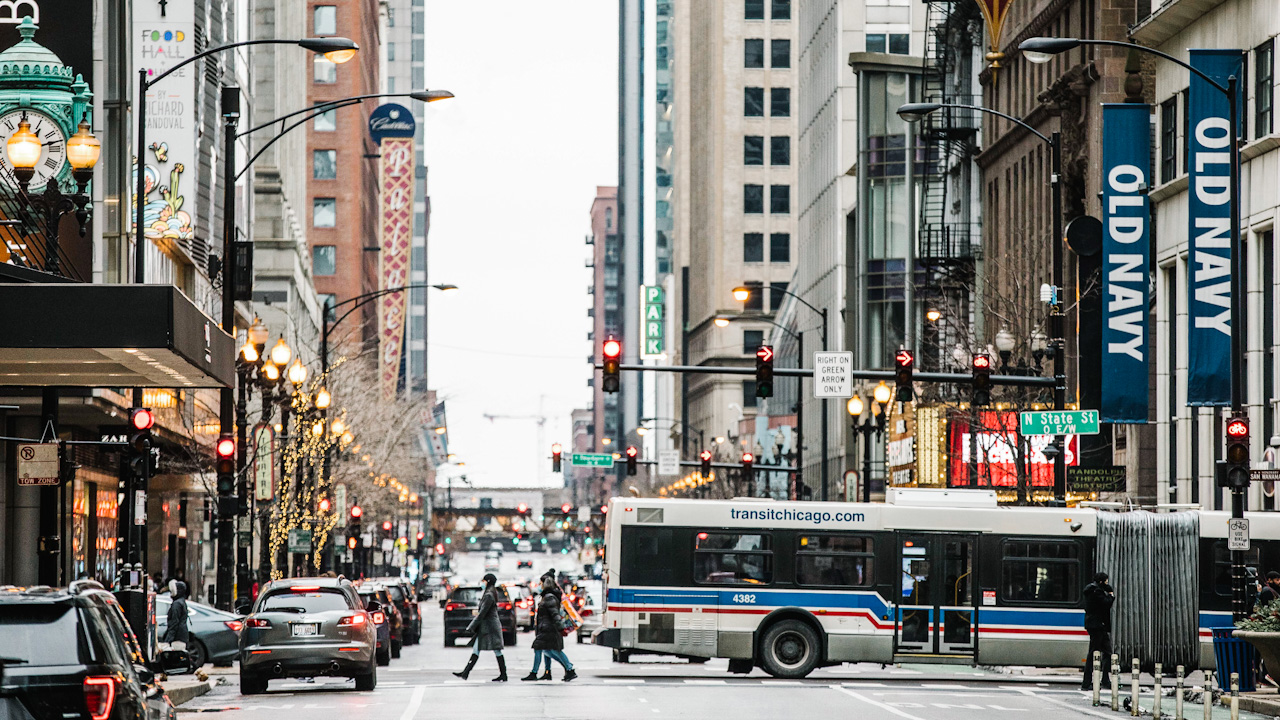 State Street, managed by the Chicago Loop Alliance. © Adam Alexander
State Street, managed by the Chicago Loop Alliance. © Adam Alexander
There are 55 Special Service Areas (SSAs) established since 1977, and the legislation of BIDs introduces a replacement option to SSAs. These are local districts that support enhanced maintenance and marketing efforts of key areas, tapping on additional localised property tax levies that building owners pay. CLA helps to maintain State Street, the oldest and largest Special Service Area in Chicago.
Supported by 300 businesses, organisations, and individuals throughout Chicago, we contribute actively to making the downtown a more vibrant place for business and an attractive lifestyle destination for residents, workers and tourists.
One of the key things that the Alliance has focused on is in creating positive experiences through initiatives like ACTIVATE. Introduced in 2014, it has brought life to unexpected spaces in the downtown. Tell us more.
Michael: The idea behind ACTIVATE is to activate forgotten and underutilised spaces in the downtown area. These can be streets, back alleys or spaces that people may walk past every day but hardly notice them.
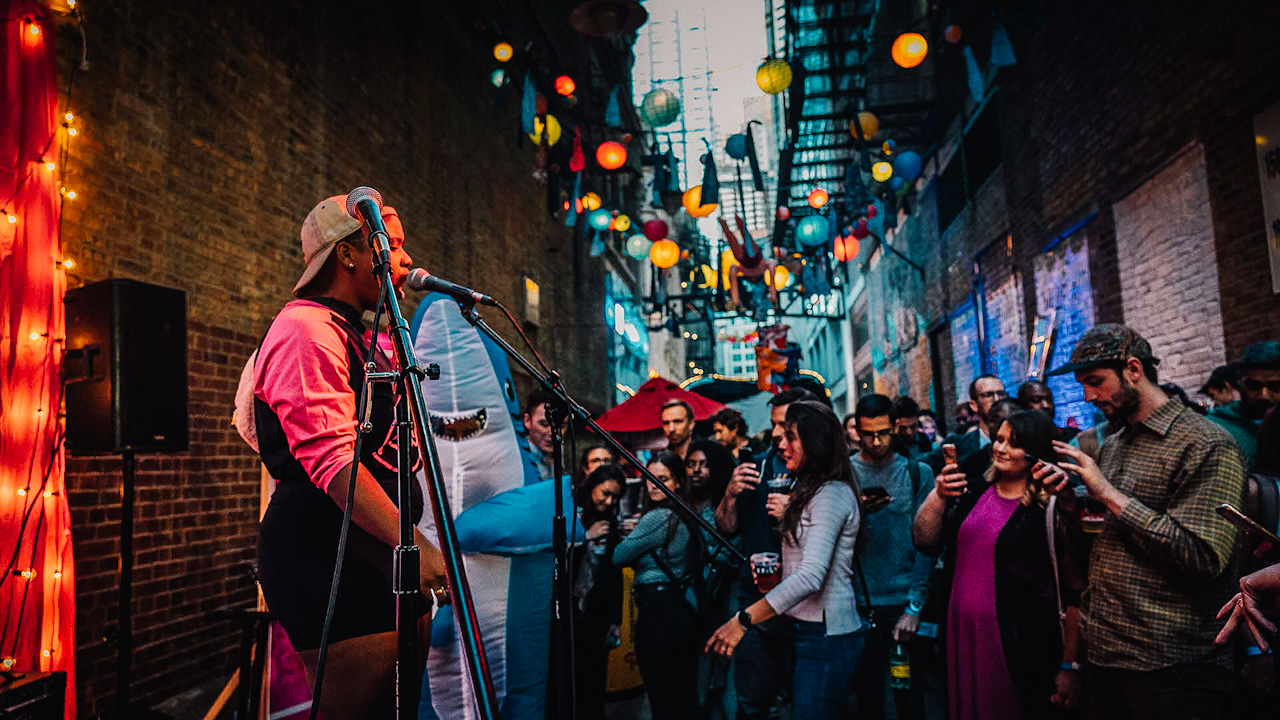 ACTIVATE events often include artists, musicians and others in creating a vibrant atmosphere for people © Torque
ACTIVATE events often include artists, musicians and others in creating a vibrant atmosphere for people © Torque
We try to activate different streets or spaces a few times each year. With each activation, the location always remains a mystery, creating an element of surprise. People will get invited a week before the event to a different place each time. Such events typically attract a lot of people. The street or space is transformed into a lively street festival. Each activation has different programming. There could be music performances. There could be marching bands and unique art installations. Or the street could be turned into a fashion runway.
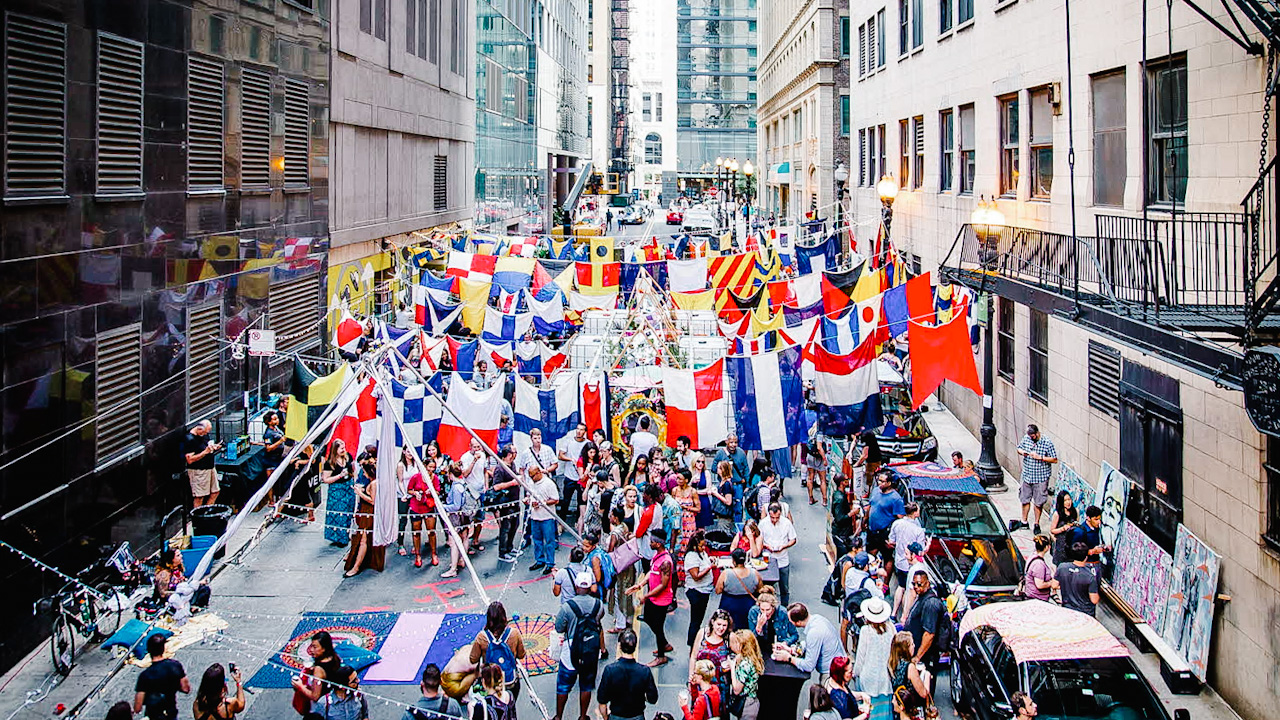 An example of an ACTIVATE event © Chicago Loop Alliance
An example of an ACTIVATE event © Chicago Loop Alliance
As a result of ACTIVATE over the years, we have created over 30 permanent murals in various streets and back alleys, engaging over 700 artists to activate alleys in a special way. Businesses in the area also benefit from the crowds spilling over to nearby cafes and shops.
This is what placemaking is all about. Beyond having more engaging streets and spaces, you are also creating unforgettable experiences for people.
How else can we connect communities more to the downtown?
Michael: State Street, the iconic street that Chicago Loop Alliance manages, is an important corridor that has been a key part for people’s lives. It is a place for celebrations. People often come here to do their Christmas shopping and make memories that last a lifetime.
In the future, we are exploring how this street can be further activated to embrace and reflect people’s different interests and passions. For example, if you have a Taylor Swift concert at Soldier Field nearby in the evening, we could close the street in the afternoon and throw a Swiftie party prior to the concert.
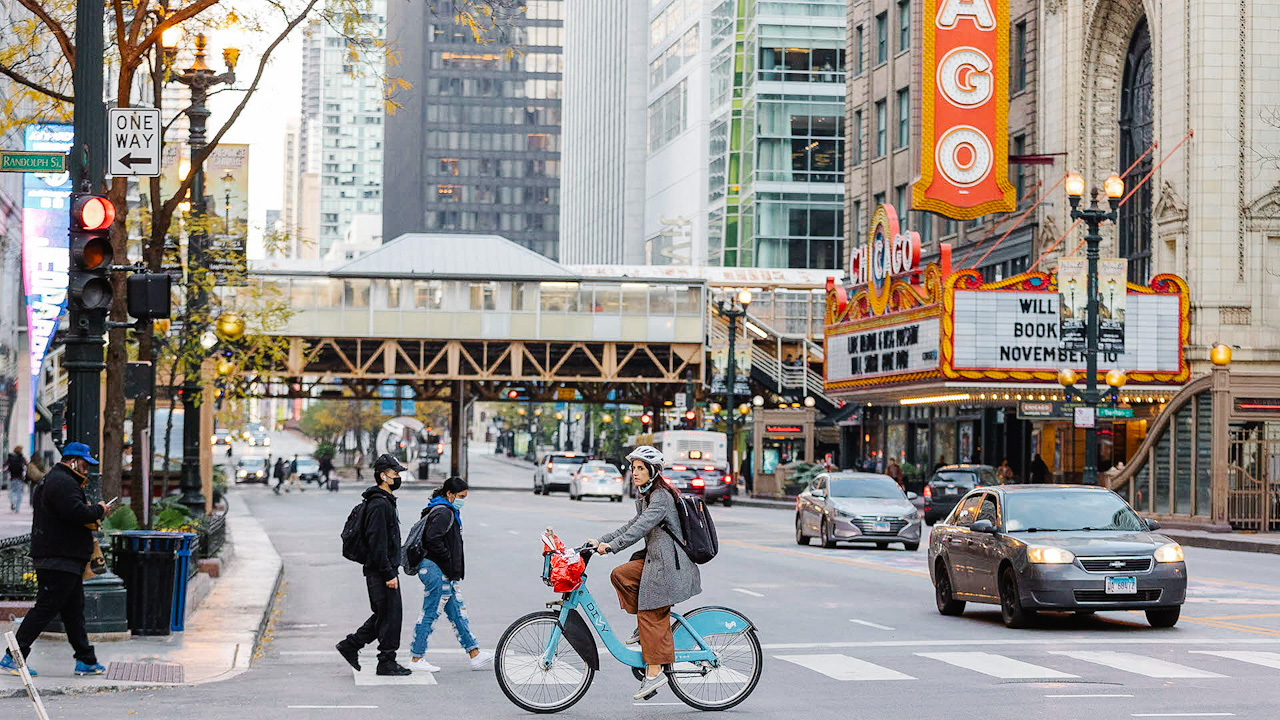 There is always something for everyone in State Street © Chicago Loop Alliance
There is always something for everyone in State Street © Chicago Loop Alliance
Or if you have the soccer player Lionel Messi coming to play at the stadium, we could invite children soccer teams to play along State Street. In this way, the street becomes even more connected and tied to people’s lives and memories in vivid and exciting ways.
While we can continue to enjoy activated streets today, our downtowns were significantly affected by the COVID-19 pandemic. How did the group navigate that difficult period?
Michael: During the pandemic when many had to work from home, nobody was going to the restaurants, cafes and shops. The theatres were also closed. During this period, there was a lack of information for people to make sense of what was going on.
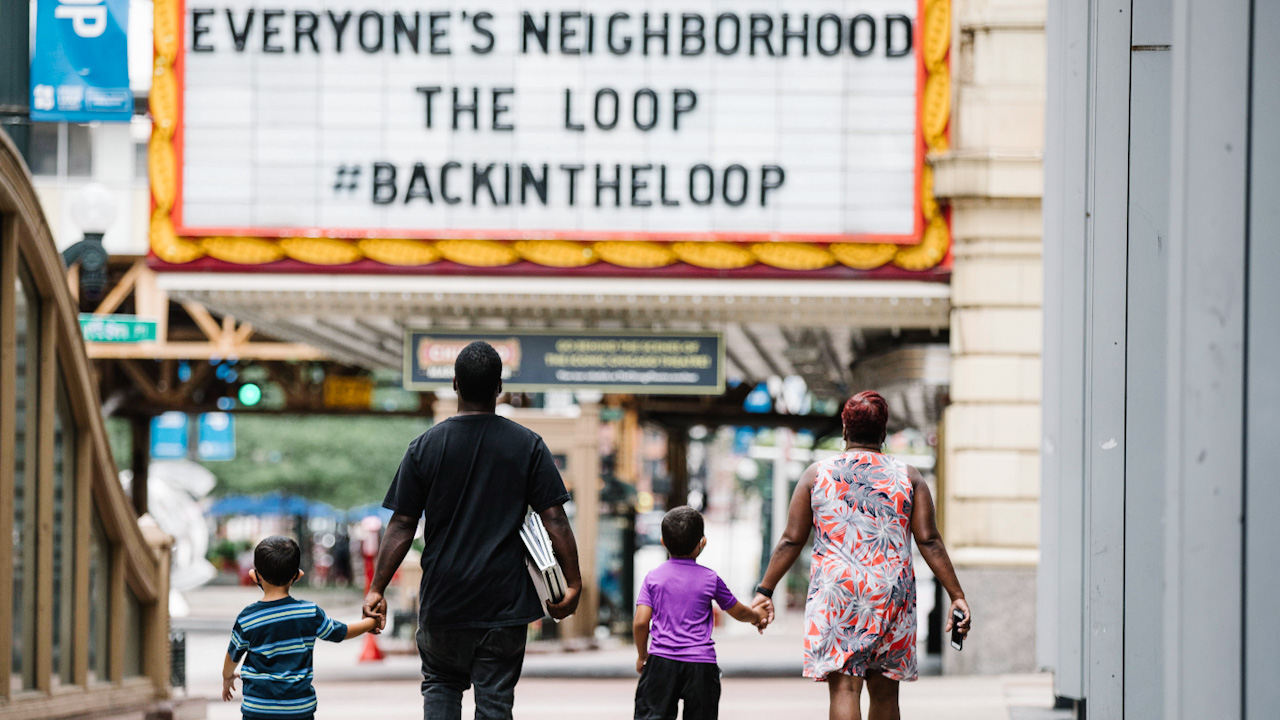 Chicago Loop Alliance proactively works to restore confidence in the downtown during the pandemic and after it © Chicago Loop Alliance
Chicago Loop Alliance proactively works to restore confidence in the downtown during the pandemic and after it © Chicago Loop Alliance
Chicago Loop Alliance became the authoritative source of information. We tapped our close partnerships with businesses and stakeholders to compile and share a range of useful and reliable data, from pedestrian traffic to transit ridership, hotel and office occupancy. This was helpful for businesses to make more informed decisions. For example, they used the data to decide when to open their shops and restaurants to capitalise on periods when there were more people in the downtown area.
With the media turning to us to understand what was happening in the downtown area, we used the opportunity to further strengthen the overall narrative on the downtown. We worked to deepen our relationship with stakeholders and partners in navigating the crisis together and to restore people’s confidence in the area.
From a public perception perspective, we created Sundays on State, an event series that closes State Street to vehicular traffic for select Sundays, filling the street with active recreation, arts and culture, food and drink and retail. The interactive block party attracts hundreds of thousands of Chicagoans and visitors, uniting the community, stimulating the economy and reinforcing that the Loop is safe, inclusive and enjoyable.
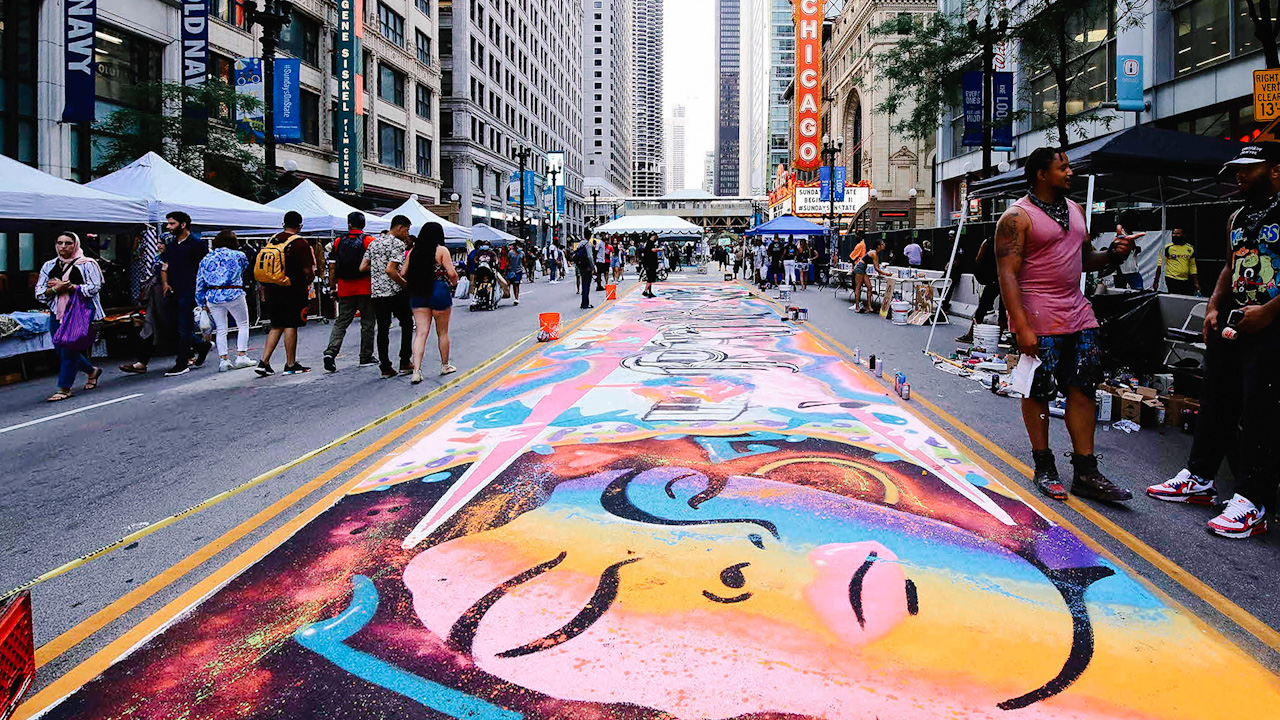 Sundays on State by Chicago Loop Alliance © Chicago Loop Alliance
Sundays on State by Chicago Loop Alliance © Chicago Loop Alliance
Post-pandemic, how do you see downtowns evolving and changing?
Michael: Downtowns are evolving to become more mixed-use, catering for live, work and play options. In the U.S., we are already seeing them become more social districts than just business districts.
There will be greater demand for more recreational activities and attractions. This is especially important for younger employees who may prefer more unique and interesting experiences.
“This is what placemaking is all about. Beyond having more engaging streets and spaces, you are also creating unforgettable experiences for people.”
For BIDs like the Chicago Loop Alliance to be effective, what are some important factors that have contributed to its success over the years?
Michael: It is important to have the right mix of people with the necessary experience and expertise in the core management team to manage BIDs well. This can range from placemaking, to marketing and economics. The core team also needs to have people who are fully dedicated and committed, with a long-term vision for the area.
Chicago Loop Alliance is managed like a business where there are clear key performance indicators. We share extensive data and research regularly with our stakeholders and partners to help them understand the value and impact of their investments in the BID.
We have been sharing quarterly reports with our stakeholders and the public since 2020. These reports include helpful data and insights on State Street’s pedestrian activity, hotel occupancy, office workers on-site, arts and cultural institutions attendance figures, retail vacancy rates and even investments in building redevelopments with enhancements to the public realm.
 Chicago Loop Alliance’s ambassadors help to keep State Street safe and clean © Chicago Loop Alliance
Chicago Loop Alliance’s ambassadors help to keep State Street safe and clean © Chicago Loop Alliance
In addition, we have an active Board with approximately 45 members who come from diverse backgrounds and professions, from architects, to developers, retailers, property owners, bankers and theatre owners. Each of them brings great perspectives and ideas in making the BID better.
Ultimately, you must learn to promote and sell your own efforts. People want to be part of our group because they know about our successes and stories. This is an important aspect to focus on in attracting and increasing the membership for BIDs. O
| Michael M. Edwards is the President and CEO of Chicago Loop Alliance. Since joining Chicago Loop Alliance in 2012, Edwards – an economic development expert – has been guiding efforts in promoting a high-performing urban experience that attracts people and investment to the Loop. Edwards is a founding member (2018) of the Global Business District Innovation Club in Paris; a Senior Fellow of the Institute of Place Management in Manchester, UK; as well as a member of the International Downtown Association Board of Directors. Edwards is an expert in downtown management and frequently speaks internationally on key downtown opportunities and challenges. |
-
A BID is a business-led and -funded body formed to improve a defined area. It is a formal place management model commonly adopted in cities in America, Europe and others. Times Square Alliance in the United States and New West End Company in the United Kingdom are examples of established BIDs. ↩

